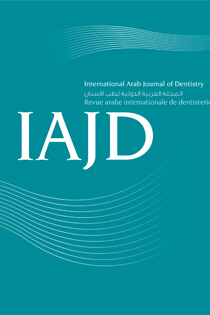Abstract
The aim of this study was to evaluate the extent of microleakage in class V cavities prepared with bur, Er:YAG laser and ultrasonic, hybridized with two different bonding agents (“Single bonding”, a solvent-free bonding agent, and “Swiss TEC SL bond”, an alcohol-based solvent).
Thirty freshly extracted human premolars were divided into three groups of ten teeth each according to the device used in cavity preparation: Group1) Er:YAG laser (500 mJ, 10 Hz, 63.69J/cm2); group 2) ultrasonic device and group 3) diamond burs. On each tooth, two cavities were prepared, one on the buccal surface and one on the lingual surface.
Each group was subdivided into two subgroups of 5 teeth each according to the bonding system used: subgroup a) “Single bonding” and subgroup b) “Swiss TEC SL bond”. Cavities were restored with a micro-hybrid composite resin. After thermocycling, the specimens were immersed in 2% methylene blue solution for four hours and then sectioned in the buccolingual direction. Dye penetration was scored using a stereomicroscope. The two-way ANOVA test and paired t-test revealed no statistically significant differences among the methods of preparation (conventional, laser and ultrasonic). However, statistical differences were found between the adhesives tested; the “Single bonding” had lower microleakage values than “Swiss TEC SL bond”.
Based on the results of this study it can be concluded that the Er:YAG laser and ultrasonic device are as effective as the conventional method in preparing cavities. The extent of microleakage depends on the type of the bonding agents.

